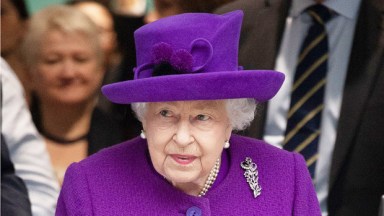
Buckingham Palace has assured the public that Queen Elizabeth II is in great health, despite two people in her life testing positive for COVID-19. The same day that British Prime Minister Boris Johnson, 55, announced that he had contracted the novel coronavirus, the palace said the 93-year-old monarch was “following all the appropriate advice with regards to her welfare. Her Majesty the Queen remains in good health. The Queen last saw the Prime Minister on March 11.” They did not comment on whether or not Queen Elizabeth has been tested for the coronavirus.
While the Prime Minister and the Queen have held meetings since that date, they have practiced social distancing and done so over the phone from 10 Downing Street and Windsor Castle, respectively. Queen Elizabeth and husband Prince Philip, 98, have chosen to self-quarantine at the castle, rather than at Buckingham Palace; they have been there since March 19. The palace also announced that almost all royal events scheduled for the “coming months” are either canceled or postponed. That includes Trooping the Colour, the Queen’s birthday celebration in June.
The new statement about the Queen’s health echoes the one released on March 25, after son Prince Charles, 71, was diagnosed with COVID-19. The palace said at the time that Queen Elizabeth was in good health, and had last seen Charles on March 12. Doctors believe the earliest he could have been contagious is March 13. Charles wife, Duchess Camilla, 72, tested negative for the virus, and the couple are self-isolating in separate parts of their home in Scotland.
In the meantime, Queen Elizabeth has promised the public that the royal family are “ready to play our part” in protecting the “most vulnerable” of the United Kingdom during the COVID-19 pandemic. At this time, nearly 12,000 people in the United Kingdom have the virus.


